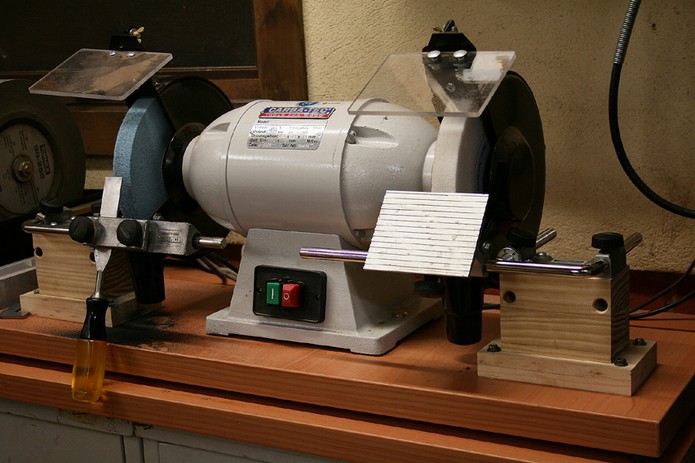Corneel
Established Member
matthewwh":1sec9zmo said:Very, very rarely will I resort to the 6" grinding wheel on the other end - way too fast and aggressive, in fact I'm thinking of replacing it with a polishing mop for honing carving tools.
That's probably why I like my grinder so much! I guess there is a learning curve for this too. I've been using these kind of grinders for over 30 years now, but I can still remember how I got my first lesson from some mechanic at the learning place where I was at that time. I was scared shitless for that thing and burned a couple of lathe bits before i got the hang of it. Now I could do it in my sleep. Let the wheel do the grinding, don't press to much, and keep a finger near the edge on the back of the blade at all times to feel for heat.


































